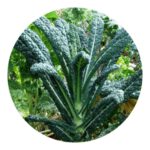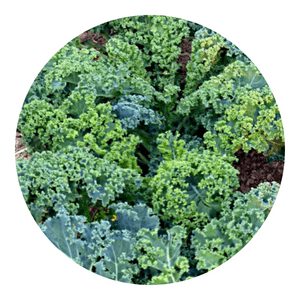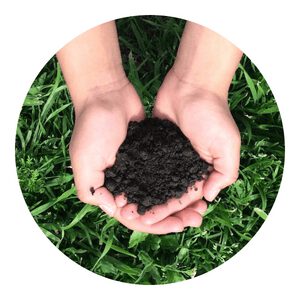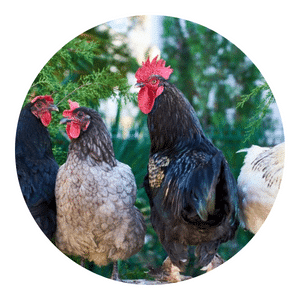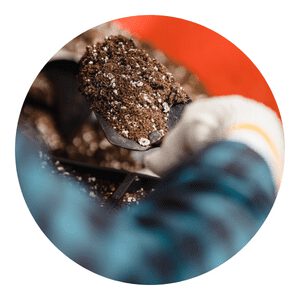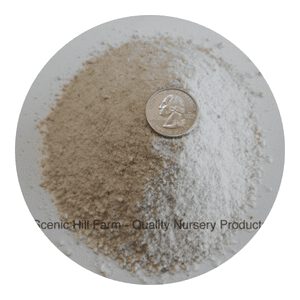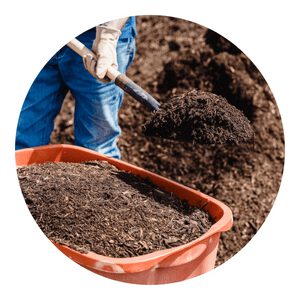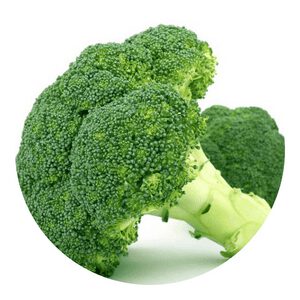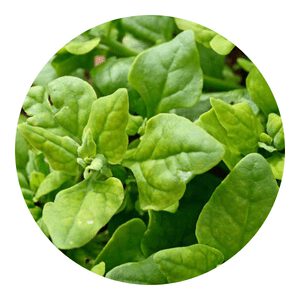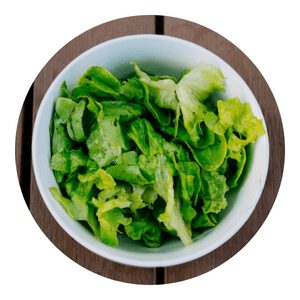Which organic fertilizer is best for kale?
Organic fertilizers are popular among gardeners because they are thought to be more environmentally friendly than synthetic fertilizers.
However, with so many different types of organic fertilizer available, it can be difficult to know which one to choose.
This article will compare three different types of organic fertilizer – compost, manure, and bone meal – to help you decide which one is best for kale.
Kale Fertilizer Menu
Why organic fertilizer?
Organic fertilizer is often times made up of composted material, and it can be very effective in helping your kale plants grow.
Kale is a leafy green vegetable that is part of the cabbage family, and it is known for its nutrient-rich leaves. When using organic fertilizer, you will be able to provide your kale plants with the nutrients they need to grow healthy and strong.
There are many benefits to using organic fertilizer for kale. One benefit is that it can help improve the taste of the kale.
Kale that is grown in soil that is fertilized with organic matter tends to have a sweeter flavor than kale that is grown in soil that has not been treated with organic fertilizer. Another benefit of using organic fertilizer for kale is that it can help to improve the health of the plant.
The many benefits of organic fertilizer kale
Organic fertilizer is not only good for the environment, but it can also be great for your kale plants. Here are some benefits of using organic fertilizer on kale:
1. Kale will absorb more nutrients from organic fertilizer than inorganic fertilizer. This is because organic matter contains many of the same nutrients that kale needs to grow.
2. Organic fertilizer will improve the structure of the soil around your kale plants, making it easier for roots to access nutrients and water.
3. Using organic fertilizer can help reduce problems with pests and diseases, since harmful chemicals are not used in its production.
4. Kale plants grown with organic fertilizer tend to be healthier overall, resulting in more bountiful harvests.
Different types of organic fertilizers for kale
There are many types of organic fertilizers that can be used to grow kale. Some common options include manure, compost, and blood meal.
Manure is a great option for kale because it provides nutrients that help the plant grow.
Compost is also a good option because it helps the soil retain moisture and provides nutrients for the plant.
Blood meal is another option that provides nitrogen to the plant, which helps it grow.
Each type of organic fertilizer has its own benefits and drawbacks, so it’s important to choose the right one for your needs.
Manure can be difficult to apply evenly, and it can also attract pests if not used properly.
Compost can be expensive, but it lasts longer than other options.
Blood meal can be messy and smelly, but it’s a fast-acting fertilizer that provides a quick boost of nitrogen.
Which organic fertilizer is best for kale?
Out of all the organic fertilizers available, fish emulsion is hands-down the best for kale.
Fish emulsion is made from whole fish that have been boiled down and it contains a high concentration of nutrients that are essential for kale growth.
Other organic fertilizers like compost and manure can also be used, but they need to be applied more frequently than fish emulsion.
If you’re looking for an organic fertilizer that will give your kale plants a boost without having to apply it too often, fish emulsion is the way to go.
There are many organic fertilizers that are great for kale but the best one is probably compost or manure. They add essential nutrients to the soil that kale needs to grow big and strong. So if you're looking to give your kale a boost, compost or manure is the way to go!
Chappy The Gardener
Fish emulsion
Organic fertilizer helps to improve the quality of the soil by providing essential nutrients for plant growth.
Fish emulsion is one type of organic fertilizer that can be used on kale. It is made from whole fish or fish parts that have been finely ground up.
Fish emulsion contains nitrogen, phosphorus, and potassium, which are essential nutrients for kale growth.
It also adds important micronutrients such as zinc, manganese, and copper to the soil.
Compost
Compost is an excellent source of nutrients for kale. It is chock full of nitrogen, phosphorus, and potassium, which are essential for healthy plant growth.
Compost also helps improve soil structure and drainage.
Horse manure
Horse manure is an excellent organic fertilizer for kale. It is high in nitrogen and other essential nutrients that kale needs to grow healthy and strong.
Horse manure also helps to improve the drainage and aeration of the soil, which kale loves.
To use horse manure as an organic fertilizer, simply spread it around the base of the kale plants.
Be sure to wear gloves when doing this, as horse manure can be quite stinky!
Water the plants well after applying the fertilizer, and you should see results within a few weeks.
Cow manure
When it comes to kale, one of the best organic fertilizers you can use is cow manure.
This type of fertilizer is packed with nutrients that kale needs to grow strong and healthy. Plus, it’s easy to find and relatively inexpensive.
If you’re using cow manure as an organic fertilizer for kale, be sure to compost it first. This will help break down the manure so that it’s less likely to burn your plants. It also makes the nutrients more available for the plants to uptake.
To apply the cow manure, simply spread it around the base of the plant. You can also mix it into the soil before planting.
Just be sure not to use too much, as this can cause problems for your plants. A little goes a long way when it comes to cow manure!
Yak manure
Organic kale fertilizer can come from many different sources, but one of the best is yak manure.
Yak manure is high in nitrogen, phosphorus, and potassium, which are all essential nutrients for kale.
It also contains other micronutrients that kale needs to thrive.
Yak manure is easy to find and relatively inexpensive. You can usually find it at garden stores or online. It’s important to make sure you get organic yak manure, as non-organic versions may contain harmful chemicals.
When using yak manure as fertilizer, you can either apply it directly to the soil around your kale plants or mix it with water and use it as a liquid fertilizer.
Whichever method you choose, make sure you don’t overdo it – too much fertilizer can actually harm your plants.
A little goes a long way with yak manure!
Donkey manure
Donkey manure is an excellent organic fertilizer for kale. It is high in nitrogen and other essential nutrients that kale needs to grow healthy and strong.
Donkey manure also contains beneficial microorganisms that help improve soil quality and promote plant growth.
Applying donkey manure to your kale plants will give them a boost of nutrients and help them to grow larger and more productive.
This natural fertilizer is easy to find and relatively inexpensive, making it a great option for those looking to organic methods of gardening.
Sheep manure
Sheep manure is an excellent organic fertilizer for kale. It is high in nitrogen, phosphorus, and potassium, which are essential nutrients for healthy plant growth.
Sheep manure also contains significant amounts of other important minerals such as calcium, magnesium, and sulfur.
Applying sheep manure to kale plants will give them a boost of nutrients that will help them to grow strong and healthy. This type of fertilizer is especially beneficial during the planting and early growth stages when plants need the most nutrition.
For best results, apply fresh sheep manure to kale plants every two weeks or so throughout the growing season.
Rabbit manure
Rabbit manure is an excellent organic fertilizer for kale. It is high in nitrogen and other essential nutrients that kale needs to grow well.
Rabbit manure also contains trace minerals that kale needs for healthy growth.
Applying rabbit manure to your kale plants will give them a boost of nitrogen, which will promote lush, green growth.
Rabbit manure also adds valuable organic matter to the soil, improving its structure and drainage.
Green manure
Green manure is an organic fertilizer that can be used to fertilize kale. It is made from green plants that are rich in nitrogen and other nutrients.
When the green plants decompose, they release these nutrients into the soil, which can then be taken up by kale plants.
Green manure is a good option for those who want to use an organic fertilizer on their kale plants.
It is relatively easy to find and use, and it is effective at providing nutrients to kale plants.
However, it is important to note that green manure should be applied before planting kale, as it needs time to decompose and release its nutrients.
Chicken manure
Organic kale fertilizer can come from many different sources, but one of the best is chicken manure.
Chicken manure is an excellent source of nutrients for kale, and it also helps to improve the drainage and aeration of the soil.
Kale that is grown in soil that has been amended with chicken manure will be less likely to experience problems with pests and diseases.
Blood meal
Organic kale fertilizer options include blood meal, compost, and manure. Blood meal is high in nitrogen and helps promote leafy growth.
It can be applied directly to the soil or mixed with water and applied as a foliar spray.
Bone meal
Kale is a nutrient-rich leafy green vegetable that is excellent for juicing, sautéing, or adding to salads. For best results, kale should be planted in rich, organic soil.
Bone meal is an excellent organic fertilizer for kale. It provides essential nutrients that promote strong plant growth and yields.
When used as directed, bone meal will not burn plants or harm soil microorganisms.
How do you increase yield of kale?
Kale is a versatile and nutrient-rich leafy green that can be grown throughout the year in many regions. While kale does not require fertilizer to grow, adding a nutrient-boost can help increase yields.
Organic options for fertilizing kale include compost, manure, and blood meal. Compost is rich in nutrients and helps improve drainage and aeration in the soil, while manure adds essential nitrogen to the soil.
Blood meal is a high-nitrogen fertilizer that can give kale a quick boost of nutrients.
When applying organic fertilizer to kale, it is important to follow the manufacturer’s instructions on rate and frequency of application.
It is also important to water the fertilizer into the soil to reduce the risk of burning the plants.
What nutrients does kale need to grow?
Kale requires a lot of nutrients to grow well. It is a heavy feeder and benefits from being fertilized regularly.
Kale needs nitrogen, phosphorus, and potassium to grow properly. These nutrients can be found in many organic fertilizers, such as compost or manure.
Kale also benefits from additional magnesium sulfate ( Epsom salts) and lime.
Magnesium sulfate helps the plant to take up nitrogen, and lime helps to prevent blossom end rot, a common problem with kale.
In conclusion, there are a few things to keep in mind when choosing an organic fertilizer for kale.
First, consider the type of kale you are growing and what type of nutrients it needs.
Second, think about your budget and what you are willing to spend on fertilizer.
Lastly, read reviews and ask around to get recommendations from other gardeners.
With a little research, you can find the perfect organic fertilizer for your kale plants.
Click To Grow
Helps Us Grow – Share If You Like

